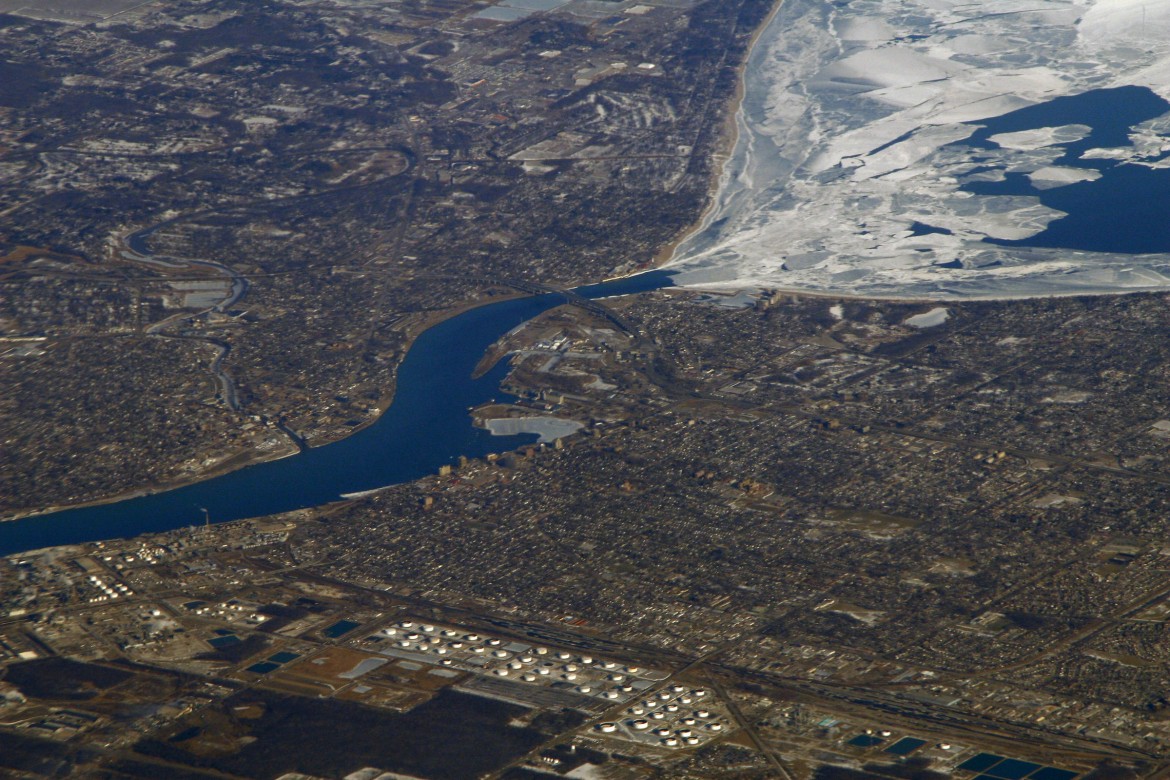The Enbridge pipelines beneath the Straits of Mackinac have been in the crosshairs of environmental groups for years. Concerns about the pipelines in the wake of the 2011 Kalamazoo River spill prompted Governor Rick Snyder to create the Michigan Pipeline Safety Advisory Board. This summer, Attorney General Bill Schuette said that the pipelines’ days were numbered.
But some environmentalists are now worried about another pair of pipelines a little farther south.

A Texas company has applied for a permit to use 98-year-old pipelines running under the St. Clair River. Image: Doc Searls.
Two pipelines laid in 1918 currently run underneath the St. Clair River in Southeast Michigan. The Texas based company that owns them applied in 2012 for a permit that allows liquid hydrocarbons including crude oil to flow through the pipelines. The company says it has no intention of shipping crude oil through the pipes, but environmentalists say they want more information.
Current State discusses the concerns of environmentalists with Liz Kirkwood, an attorney with the advocacy group For Love of Water (FLOW).
INTERVIEW HIGHLIGHTS:
Why is this just starting to raise questions in the environmental community?
“As I understand it, this is really the first time that the public has been aware that there are 98-year old pipelines in the St. Clair River. We’ve known there’s transportation of oil and gas. But when there’s a transfer of [pipeline] ownership from one company to another, it triggers a Presidential permitting process. The thirty day permit period came and went, and there was very little public comment. That’s the concern.” — Liz Kirkwood
Why should there be new concerns if they aren’t changing the permit?
“The original presidential permit that Plains All-American applied for in 2012 did not include crude oil. It was limited to liquid hydrocarbons. So the modification is going to extend the authorization to the original pipelines from 1918. As we understand it, these pipelines haven’t been active in many years.
There are many, many questions about the integrity of these pipelines. The risk that crude oil poses versus light, liquid hydrocarbons is very significant in terms of the emergency response.” — Kirkwood
On the main issue of this permitting process
“The issue is that the public would like to understand what the current status of these pipelines are; in terms of the specific product that’s being transported, the integrity of the pipeline, and the risks these pipelines pose to human health and the environment.” — Kirkwood
This story appeared on WKAR’s Current State and is republished here with permission.